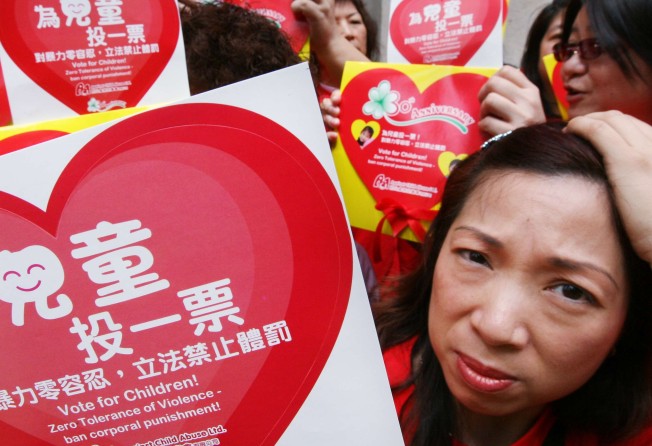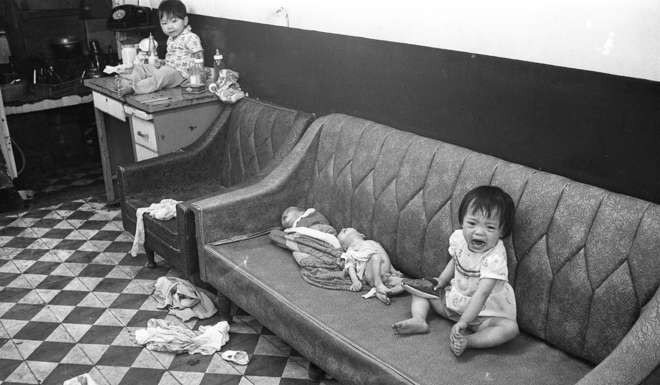Should Hong Kong ban spanking of children at home as well as in school?
Yonden Lhatoo looks at how France has made corporal punishment of children illegal and compares it with Hong Kong, which is unlikely to make such a move

Buried under the daily barrage of bad news, there was a recent report that did not resonate much in this part of the world but I found it quite intriguing, nonetheless: you’re officially no longer allowed to spank your children in France.
The fine print took some of the gee whiz out of the news, as it turns out that France is only the 52nd country in the world to take such a step. Sweden is quantum leaps ahead of everyone, having started in 1979.
Also, bear in mind that the new law in France is more symbolic than draconian, as offenders will not face criminal punishment. That’s in a country where 85 per cent of parents smack their children and are likely to carry on doing it, although a tad more discreetly from now on, perhaps.
What about Hong Kong? Just the other day, I watched another exemplar of the eternal conflict between misbehaving child and frustrated parent play out in a shopping mall. “Just wait until we get home,” the mother warned as her little princeling shook the rafters with a thunderous tantrum over some abruptly cancelled visit to Toys ‘R’ Us.
It reminded me of “somebody gonna get a-hurt real bad”, the trademark quote that Indian Canadian comedian Russell Peters attributes to his father in his classic stand-up routine on parenting.
Peters jokingly recalls his father’s response when threatened with a phone call to Children’s Aid for beating his kid: “I might get into a little bit of trouble, but I know that it’s going to take them 23 minutes to get here. In that time, somebody gonna get a-hurt real bad!”
Watch: Comedian Russell Peters’ routine on parenting
Not many children are getting “a-hurt real bad” by their parents in Hong Kong, where the English common law defence of “reasonable chastisement” applies, and corporal punishment at home is allowed. But a 2015 survey found that about half of the city’s children, aged six to 13, were physically disciplined by their parents, who used bare hands as well as handy implements like clothes hangers and rulers to inflict punitive pain.
Our city has banned corporal punishment in schools since 1991, but resisted calls by concern groups to extend the ban to homes. That’s unlikely to change, as Hong Kong is a traditional society on the whole and the conservative mindset prevails in such matters.

I tend to agree with the school ban. With all due respect to decent teachers, it’s totally understandable that most parents don’t and won’t trust strangers, qualified or not, to lay hands on their children.
Most of the teachers during my own schooldays were decent educators, but I haven’t forgotten a few who went beyond the usual ruler rap on the knuckles to what would only be described as criminal assault these days. They would be behind bars if they did that now, for sure. The philosophy of “spare the rod and save the child” does not entail crippling the child with said rod.
A study last year by the American Journal of Family Psychology analysed five decades of research involving more than 160,000 children to conclude that the more we spank our kids, the more likely they are to defy us. They’re also more prone to antisocial behaviour, aggression, mental health problems and cognitive difficulties, apparently.
Like many of my friends and contemporaries, I wasn’t spared the rod myself growing up, both at home and school, but we like to look back and think it made us a little broader-shouldered and thicker-skinned than Generation Snowflake these days.
After all, as Immanuel Kant once said, “Man must be disciplined, for he is by nature raw and wild.”
Yonden Lhatoo is a senior editor at the Post